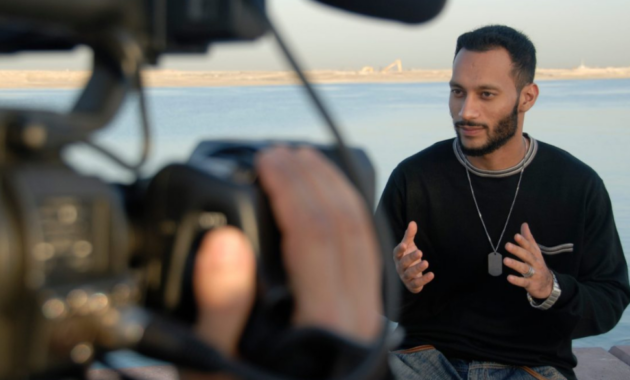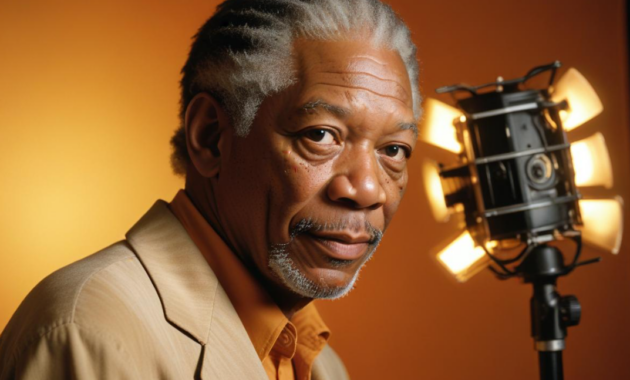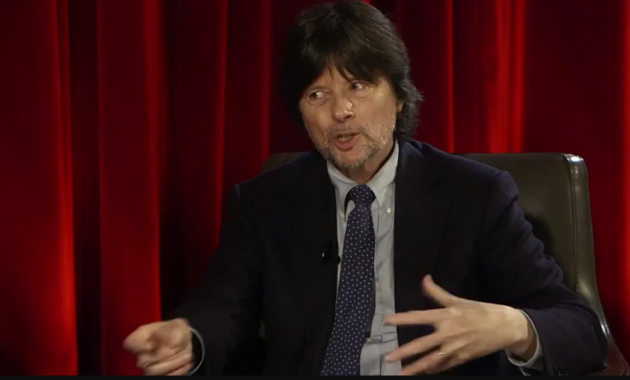
The power of a compelling narrator can elevate a documentary from informative to unforgettable. As we've explored in our overview of The Art of Documentary Narration, the narrator's voice is a crucial element in non-fiction storytelling. In this guide, we'll delve into the world of famous documentary narrators, examining their unique techniques and the impact they've had on the genre.
1. Sir David Attenborough: The Voice of Nature
Sir David Attenborough's distinctive voice has become synonymous with nature documentaries. His narration technique is characterized by:
- Warm, authoritative tone
- Clear enunciation and pacing
- Ability to convey wonder and excitement
- Seamless blend of scientific accuracy and storytelling
Notable Work: "Planet Earth" series, "Blue Planet"
Technique Spotlight: Attenborough's narration often anthropomorphizes animals, giving them relatable characteristics to engage viewers emotionally while maintaining scientific integrity.
[Suggested External Link: The Art of Narration: David Attenborough by BBC Culture]
2. Morgan Freeman: The Voice of Authority
Morgan Freeman's deep, resonant voice brings gravitas to any subject. His narration style is known for:
- Rich, commanding tone
- Measured pacing with strategic pauses
- Ability to simplify complex topics
- Conveying a sense of universal wisdom
Notable Work: "March of the Penguins", "Through the Wormhole"
Technique Spotlight: Freeman often uses his authoritative voice to pose thought-provoking questions, encouraging viewers to engage critically with the content.

3. Werner Herzog: The Philosophical Storyteller
Werner Herzog's unique accent and contemplative style bring a distinct flavor to documentary narration. His technique includes:
- Philosophical and often poetic language
- Personal observations and interpretations
- Ability to find profound meaning in ordinary events
- Distinctive German accent that adds character
Notable Work: "Grizzly Man", "Encounters at the End of the World"
Technique Spotlight: Herzog often interjects personal thoughts and questions into his narration, blurring the line between objective documentary and personal essay.
[Suggested External Link: Werner Herzog's Guide to Ecstatic Truth in Documentary by IndieWire]
4. Sigourney Weaver: The Versatile Narrator
Sigourney Weaver's narration work showcases her versatility across various documentary subjects. Her technique is marked by:
- Adaptable tone to suit different topics
- Clear, engaging delivery
- Ability to convey both emotion and scientific facts
- Subtle use of her acting skills to enhance the narrative
Notable Work: "Planet Earth", "The Meerkats"
Technique Spotlight: Weaver excels at modulating her tone to match the mood of the visuals, creating a seamless audio-visual experience.
5. Ken Burns: The Historian's Voice
While not always the primary narrator, Ken Burns' influence on documentary narration style is significant. His approach includes:
- Use of multiple narrators to provide different perspectives
- Integration of historical quotes and documents
- Evocative language that brings history to life
- Careful pacing to allow absorption of visual information
Notable Work: "The Civil War", "Jazz", "The Vietnam War"
Technique Spotlight: Burns often combines narrator voices with readings of historical documents, creating a rich tapestry of voices that transport viewers to different time periods.

Mastering the Techniques of Great Narrators
While each of these narrators has a unique style, there are common techniques we can learn from them:
- Develop a signature voice: Whether it's Attenborough's warm tone or Herzog's philosophical musings, a distinctive voice helps create a memorable experience.
- Master the art of pacing: Knowing when to pause or speed up can dramatically affect the viewer's engagement.
- Connect emotionally: Great narrators know how to evoke emotion without overshadowing the content.
- Adapt to the subject matter: The best narrators can adjust their style to suit different topics and moods.
- Blend information with storytelling: Striking the right balance between facts and narrative helps keep viewers both informed and engaged.
[Suggested External Link: The Science of Storytelling in Documentaries by Nature]
By studying and adapting techniques from these famous narrators, filmmakers and voice artists can enhance their own narrative styles, creating more impactful and memorable documentaries.

